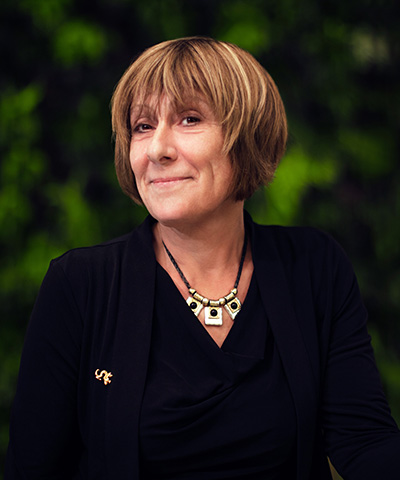Ferrucci Institute - Windows to Italy Series
"The Global Italian Diaspora: Texts and Context of Italianness in an Era of Global Migration" a talk by Dr. Norma Bouchard
Hosted By

Wilkinson College of Arts, Humanities, and Social Sciences

Leatherby Libraries

Ferrucci Institute for Italian Experience and Research
Italian poet, filmmaker, and novelist Pier Paolo Pasolini composed the poem "Profezia" in 1964. With remarkable foresight, Pasolini predicted the transformation of Italy from a country of emigration to one of immigration, capturing the changes that would unfold in the post-World War II era on the Italian peninsula. He envisioned a moment of unconditional hospitality, where Southern Italians from Calabria would recognize Algerian migrants as participants in a shared history of Mediterranean colonization and migration. While Italy has indeed undergone the transformation from an emigrant to an immigrant destination, the reality of migrant arrivals has fallen short of Pasolini's imagined encounter. The implementation of "Fortress Europe" has turned the Mediterranean into the largest cemetery in Europe, to echo the words of Pope Francis. Additionally, the presence of underprivileged and economically disadvantaged individuals from Africa, Asia, Latin America, the Middle East, and Eastern Europe on Italian soil has fueled the propagation of nationalistic myths rooted in geography, culture, and ethnicity. Strict legislative measures continue to be enacted to contain and minimize their arrival. Nevertheless, the growing presence of migrants in Italy has also spurred significant developments in the contemporary cultural landscape. Through testimonies and narratives, migrants give voice to experiences that resonate with generations of Italians, leading to the recovery of suppressed aspects of Italy's own history. Furthermore, the increasingly nuanced stories from recent authors challenge the notion of a homogeneous Italian identity, joining a broader reconsideration of Italy's hybrid identity that encompasses music, film, and literature produced by well-established native voices. Ultimately, this collective discourse of memory and imagination prompts a reevaluation of national identity in a transnational context. Powerful manifestations of Italianità, or Italianness, emerge across territorial, cultural, and ethnic boundaries, highlighting the multiple sites and locations that define the past and present. As intertwined networks of "Smaller" and "Greater" Italies resurface, they offer the possibility of imagining a more inclusive future where civic, social, and political rights, along with their associated responsibilities, are no longer tied to unattainable models of origin and belonging.
Guest Speaker: Dr. Norma Bouchard

Norma Bouchard, Ph.D. is a professor in Wilkinson College of Arts, Humanities, and Social Sciences and the Provost of Chapman University. A graduate of Universita’ degli Studi di Torino (laurea in French and German) and Indiana University (PhD in Comparative Literature), her research and teaching interests include Mediterranean Studies, Italian American Studies, 19th and 20th century Italian Culture, the Risorgimento, Modernism and Postmodernism, Critical Theory, Theories of Nationalism, Migrant and Postcolonial Writings in Italy, and Film. She is the author of numerous articles and book-length publications. Among her book-length publications are The Politics of Culture and the Ambiguities of Interpretation: Umberto Eco’s Alternative (1998); Céline, Gadda, Beckett: Experimental Writers of the 1930s (2000); Risorgimento in Modern Italian Culture: Revisiting the 19th century Past in History, Narrative, and Cinema (2005); Italian Cultural Studies: Negotiating Regional, National and Global Identities, Annali d’Italianistica 24 (2006); Italy @ 150: National Discourse at the Sesquicentennial 1861-2011 (2012), Nation(s) and Translation (2020); The Camps of the ‘Duce’: Civilian Internment in Fascist Italy 1940-1943 (2020). She is currently working on the monograph Cultural Interventions from the Archives of History.
By clicking the Windows to Italy button on the right, more information about the series is available.
The Doy and Dee Henley Reading Room is located on the 2nd floor of the Leatherby Libraries. Please view the Interactive Campus Map by clicking the button to the right. Within the map, click on the "Buildings" option and scroll to the "Leatherby Libraries."
You can contact the event organizer, Dr. Federico Pacchioni at pacchion@chapman.edu.
Edit contact information